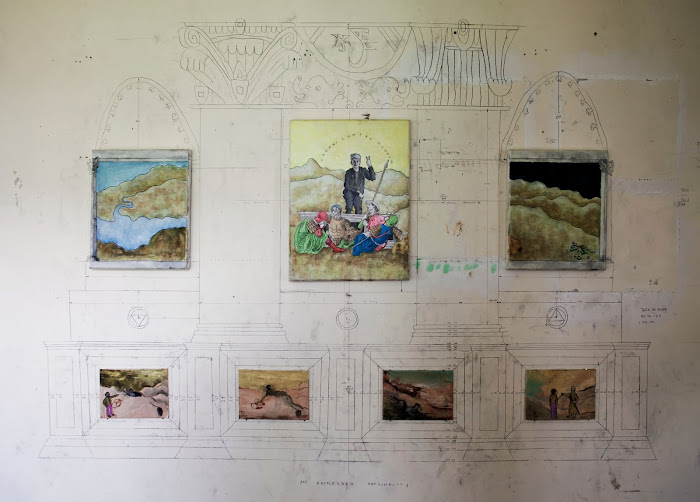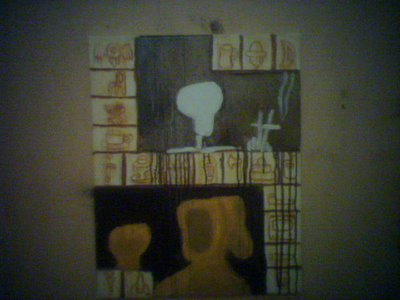I thought those of you with no experience of it might be interested in the following:
Editing principlesThe main aim of editing is to remove any barriers between the reader and what the writer wants to convey. Editing ensures the text is clear and consistent; has good grammar, spelling, and punctuation; and has a sensible structure. The reader usually only notices editing when it is lacking.
Strictly speaking, if something is not inconsistent, grammatically wrong, or factually incorrect, it should not be changed. A common error is for an editor to rewrite in their own style. Every change must be justifiable and must not affect the author’s intended meaning or voice.
Types of editingStructural editingStructural editing, which is sometimes called substantive editing, involves clarifying or reorganising the text’s content and structure. The editor may suggest changes for the author to make or may rearrange and rewrite the material in consultation with the author.
Copy-editingCopy-editing involves detailed editing for sense and checking for consistency. It is sometimes called line editing. When editing for sense, the editor looks at each sentence to clarify meaning, eliminate jargon, and ensure that it meets the requirements of house style and English grammar and usage.
House styleEvery element in published material follows a style. Spelling, punctuation, capitalisation, etc can be rendered in different ways that are equally correct. In order to be consistent across publications, most publishers have preferences on which variant they use. These preferences are known as the publisher’s house style and are usually documented in a style guide. A house style is distinct from the generally accepted rules of grammar, spelling, and usage (which are usually inviolable in good writing). Editors apply both when carrying out their work.
Some common misconceptionsPut commas where you would pause when speaking or to break up a long sentenceCommas are arguably the most abused form of punctuation. Although there is great latitude in their use, there are some circumstances where including or omitting a comma is mandatory.
A common error is to use a comma to join two unrelated main clauses. This causes a comma splice and can be fixed by adding a co-ordinating conjunction, replacing the comma with a semicolon, or separating the clauses into two sentences.
A comma must never be used to separate a restrictive (defining) word, phrase, or clause. A restrictive word, phrase, or clause cannot be removed from a sentence without affecting the meaning. In the sentence “The man who was wearing a suit stood up”, “who was wearing a suit” defines which man stood up.
A comma must be used to separate a non-restrictive (non-defining) word, phrase, or clause. A non-restrictive word, phrase, or clause is not essential to the meaning of the sentence but comments on, or adds information to, the main clause. In the sentence “David, who was wearing a suit, stood up”, “who was wearing a suit” adds information about the man who stood up but could be removed without affecting the meaning of the sentence.
A comma must never separate the subject and verb of a sentence. This is a common fault in sentences where the subject is long and there would be a natural pause when speaking.
The semicolon is a “super” commaThere are only two legitimate circumstances where you can use a semicolon. One is to separate two unrelated main clauses that could have been joined by a co-ordinating conjunction or treated as separate sentences. The other is to separate elements in a list that themselves contain commas.
Never end a sentence with a prepositionNineteenth-century grammarians, in a misguided attempt to make English more like Latin (which they considered more logical than, and hence superior to, English), made up some rules that have proved remarkably resilient despite their patent silliness. This is one of them. The artificiality that results from slavish adherence to this “rule” is exemplified by Winston Churchill’s cutting observation that “This is the sort of English up with which I will not put.”
Never split an infinitiveThis is another pseudo-rule taken from Latin by nineteenth-century grammarians and inappropriately grafted on to English (which is a Germanic language). The only thing wrong with Captain Kirk’s injunction “to boldly go where no man has gone before” is its sexism, which leads me to…
“They” is not a singular pronoun“They” has been used as a singular pronoun since at least the fourteenth century, until those pesky prescriptivist grammarians from the nineteenth century naively interpreted Latin-based rules of grammatical agreement and ruled that “they” should be used only in the plural. Therefore there is no need for cumbersome new constructions such as “he or she” when a perfectly good old word will do.
George Orwell’s rulesIn his classic essay “Politics and the English Language”, George Orwell set out six rules for effective writing:
1. Never use a metaphor, simile, or other figure of speech which you are used to seeing in print.
2. Never use a long word where a short one will do.
3. If it is possible to cut a word out, always cut it out.
4. Never use the passive where you can use the active.
5. Never use a foreign phrase, a scientific word, or a jargon word if you can think of an everyday English equivalent.
6. Break any of these rules sooner than say anything outright barbarous.






